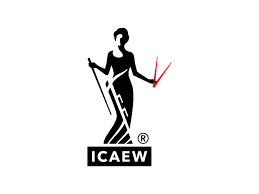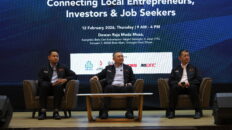Balancing Fiscal Discipline with Inclusive Prosperity
Malaysia’s Budget 2026 marks a crucial milestone in the country’s 13th Malaysia Plan, introducing a series of fiscal and structural reforms designed to strengthen resilience while promoting inclusive, innovation-led growth.
The government’s plan includes subsidy rationalisation, carbon-pricing readiness, and expanded tax-base measures, complemented by support for SMEs, R&D, and green innovation. Together, these policies aim to restore fiscal stability, attract high-value investments, and prepare Malaysia for long-term sustainable development.
Subsidy Reform and Social Protection
Budget 2026 introduces targeted subsidy schemes such as BUDI95 for RON95 petrol and SKDS 2.0 for diesel, supported by cash assistance programmes (STR and SARA) worth RM15 billion. Savings of RM2.5 to RM4 billion from subsidy rationalisation will be redirected to low-income households.
Experts, including David Lai and Tan Chin Teck of BDO Malaysia, highlighted that while rationalisation is necessary, improved delivery mechanisms are essential. Lai urged combining e-invoicing, income, and consumption data for fairer targeting, while Tan recommended aligning subsidy withdrawals with broader tax and welfare reforms.
Tax Reforms for a Competitive Malaysia
The Budget expands the Service Tax to professional and digital services, raises selected rates from 8% to 10%, and implements e-Invoicing nationwide by 2026. It also introduces the Global Minimum Tax (GMT) for multinational corporations and refines capital gains tax on unlisted shares.
Lai noted that Malaysia’s tax-to-GDP ratio (12.5%) remains one of ASEAN’s lowest, cautioning that excessive levies could deter investors. He proposed a flat 2% dividend tax and exemptions for single-family offices, enhancing Malaysia’s attractiveness as a regional financial hub.
Tan added that broader B2B exemptions under the Service Tax could reduce cascading costs and improve compliance efficiency.
Empowering SMEs and Driving Innovation
SME support remains a cornerstone of Budget 2026, with allocations for automation, R&D, and high-tech facilities under NIMP 2030 and the AI Sandbox Initiative. Grants via BSN, SME Bank, and Bank Negara will encourage adoption of digital tools, AI, and green technologies.
Kevin Foo and Elliot Chaw of KPMG in Malaysia said smart tax administration using AI and predictive analytics could reduce audit burdens and enhance compliance. They added that fintech-friendly policies could position Malaysia as a regional digital finance hub.
Tan Chin Teck suggested a new innovation-specific tax regime and faster approval processes to attract AI and semiconductor startups, while Lai proposed linking strategic zones such as the Johor-Singapore SEZ to local SME supply chains to create multiplier effects.
Advancing the Green Economy
Budget 2026 strengthens Malaysia’s National Energy Transition Roadmap (NETR), with an RM60 billion investment pipeline supporting the Energy Efficiency and Conservation Act 2024 and the CCUS Act 2025.
Chong Yen Ting of Scatec Solar praised the government’s commitment but emphasised affordability and transparency in green-energy pricing. She called for clear carbon-pricing frameworks, improved land allocation for renewable projects, and accessible ESG-linked financing.
KPMG’s Foo and Chaw added that clear timelines and structured consultations would ensure successful carbon-tax implementation, while expanded EV tax incentives could accelerate Malaysia’s clean mobility transition.
Broadening the Tax Base Fairly
With a fiscal deficit target of 3.5% of GDP by 2026, Malaysia plans to strengthen its revenue base through tax modernisation, improved enforcement, and digital compliance tools.
Lai urged reviewing deductions and reliefs to widen the tax net fairly, while Tan proposed reforming welfare models like STR and SARA after Singapore’s GST Voucher Scheme to mitigate cost-of-living impacts.
Transparency, both experts agreed, will be key: clearly communicating how revenues fund public services like education, healthcare, and infrastructure is vital to building public trust.
Building a Stronger Fiscal Future
Overall, experts from ICAEW Malaysia, BDO Malaysia, KPMG, and Scatec Solar concluded that Budget 2026 strikes a careful balance – consolidating fiscal health while maintaining fairness and competitiveness.
From subsidy rationalisation and digitalisation to SME empowerment and climate resilience, Malaysia’s latest Budget underscores a shared vision: a resilient, innovative, and sustainable economy that works for all Malaysians.








